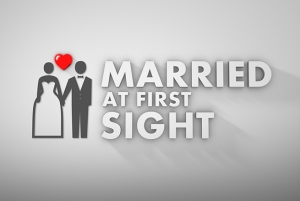By Nathan Campbell on his blog at St-Eutychus
It turns out #lovewins.
If you’re one of my friends, or someone I don’t know, who’s celebrating the changes to the laws in America, and anticipating those changes where you are — I want you to know three things right off the bat, before you set out on reading this post:
- God loves you. He shows that love for you in that Jesus dies for you (and for me) even though we didn’t ask him to, or want him to.
- I think all people everywhere are equally broken and we all experience a world that is equally broken through equal brokenness, whether this is in our sexuality, gender or anything we build our identity on. I hope this stops me sounding judgmental because it certainly removes any platform I might stand on to judge you (or others) from.
- I am hoping that this reflects God’s love for you (and thus, my love for you), and that it isn’t a judgmental, handwringing exercise that makes you feel misunderstood or hated. If you feel either of those things, get in touch. Let me know where I’ve gone wrong. Let’s have a coffee or a beer. I like both.
This post is something like a post-mortem examining where I think Christians got it wrong when we spoke about gay marriage (not all Christians got all these things wrong). It’s a reflection, at times, on what we could have said, should have said, or didn’t say as much as it reflects what I’ve experienced Christians saying, or said myself. Some of it, especially the transgender/intersex stuff towards the end, is new thinking for me. Some isn’t. I’d love to hear other ideas about where things went wrong.
But ultimately, whatever the outcome in the courts and parliaments of this world, I’m not all that worried. Because the hash tag gets it right.
#lovewins.
That’s the good news for Christians who’ve woken up to a sea of rainbows at every turn in the last few days. An iconic and colourful reminder of the victory over the (largely) Christian case for not changing the definition of marriage in the (formerly) Christian west.
The US Supreme Court handed down its judgment this weekend, and I maintain (despite this causing some angst amongst Christian friends previously), that Australia is certain to follow. This isn’t entirely a meek capitulation, I think the fight was lost a long time ago.
Anyway I keep reminding myself #lovewins.
There’s been a lot of handwringing from Christians on the Internet in the fallout to this momentous decision, but I just want to remind my handwringing brothers and sisters, that if you take the Bible seriously, which people against gay marriage typically claim to, then this is how the story of the world ends. #lovewins. It’s already written.
I saw the Holy City, the new Jerusalem, coming down out of heaven from God, prepared as a bride beautifully dressed for her husband. And I heard a loud voice from the throne saying, “Look! God’s dwelling place is now among the people, and he will dwell with them. They will be his people, and God himself will be with them and be their God. ‘He will wipe every tear from their eyes.There will be no more death’ or mourning or crying or pain, for the old order of things has passed away.”
He who was seated on the throne said, “I am making everything new!” Then he said, “Write this down, for these words are trustworthy and true.”
He said to me: “It is done. I am the Alpha and the Omega, the Beginning and the End. To the thirsty I will give water without cost from the spring of the water of life. Those who are victorious will inherit all this, and I will be their God and they will be my children — Revelation 21:2-7
#lovewins because it won at the Cross. Life now would be a whole lot easier if we came to grips with that when coming to grapple with politics and life in general. Incidentally there’s some bad news after those verses for the people in this world who don’t think God is all that important. But I’m writing this primarily for those who claim to believe in the God of the Bible and follow his son.
Stop worrying.
#lovewins.
1. WE DIDN’T TREAT PEOPLE THE WAY WE’D LIKE TO BE TREATED
You might feel like the world is against you. The world might well become against you. You might deserve this. I think we’re in for a big dose of our own medicine here, and that’s what terrifies me. Because we Christians deserve what’s coming. Do you know why people think Christians are anti-gay? Do you know why until very recently in most of these countries that are changing the definition of marriage it was illegal to be gay?


